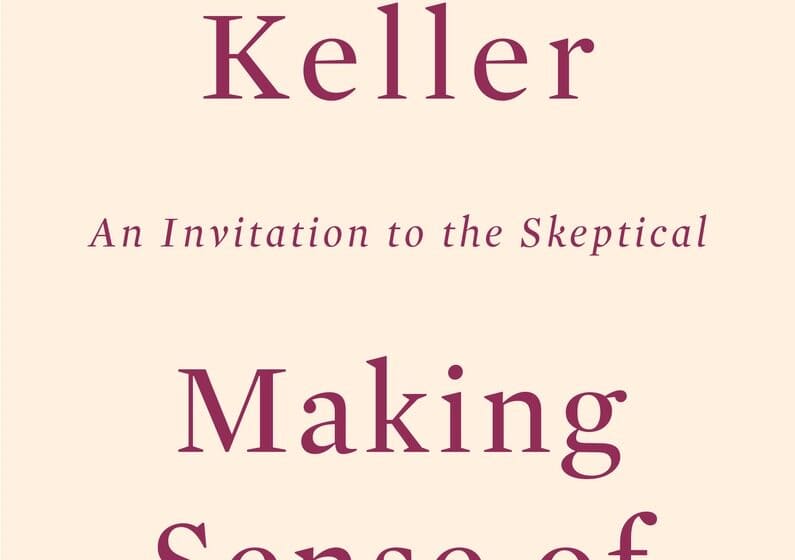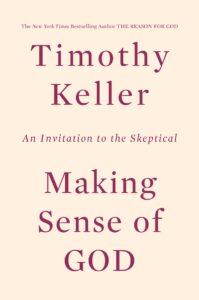
The late Timothy Keller wrote Making Sense of God: An Invitation to the Skeptical (Viking) in 2016. First, Pastor Keller observes, both believers and nonbelievers arrive at their positions in the same manner. Through a combination of experience, faith, reasoning, and intuition. However, Timothy stresses, Christianity explains life issues in the most incisive ways – provides unsurpassed resources for meeting human needs. In contrast, secular reason, all by itself, is incapable of giving us a basis for sacrifice, redemption, and forgiveness. Also, secular people assume belief to be merely a matter of faith, but that nonbelief is based on reason. The truth? It necessarily entails faith to say there is no God or there is a God.
Therefore, it requires an enormous leap of faith to hold that humans are solely the product of the evolutionary process yet possess a dignity to be honored. Christianity, though, believes the battle for human virtue involves where to direct the supreme love of your heart. Hence, the Christian faith offers the greatest, richest goods. Goods for understanding, facing, and living live. For making sense of God. More than we can imagine! therefore, traditional belief in God serves as a basis for discovered, objective meaning. Above all, without such meaning we have no basis for telling someone else to stop what they’re doing. God designed us to live in loving communion with Him. So, we harm ourselves if we love anything more than God.
Numerous freedoms exist at the level of life. Consequently, there’s not just one thing called freedom. Because freedom comes from the strategic loss of some freedoms in order to gain others. And you get the best freedoms when you submit your choices to various realities and honor your own design. Thus, positive freedom involves using your freedom to live in a specific way (freedom for vs. freedom from). But when you seek your own self-interest in every situation, your identity essentially disappears. In biblical terms, then, we need someone to bless us. Because we cannot bless ourselves. We want to know God created us for a purpose.
In conclusion, Pastor Keller underscores, a Christian identity is not achieved but received. The Christian faith provides a durable and unbreakable sense of worth. Most significantly, children of God possess the resources to become more open to difference and more culturally flexible. And Christians not only hope for consolation for life we have lost. Christians also look forward to the restoration of life we wanted but never had. In Making Sense of God, Pastor Keller describes hope as a joy that sorrow can only enrich and deepen until it completely gives way to it.
Writing in “It’s the Gospel Truth,” A. N. Wilson proclaims:
“The Gospel would still be true even if no one believed it. The hopeful thing is that, where it is tried . . . it’s palpable and remarkable power to transform human life takes us to the position of believing something very wonderful indeed began with the birth of Christ into the world.”

 Making Sense of God
Making Sense of God